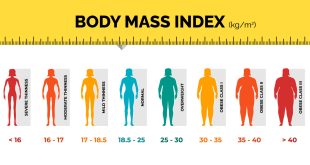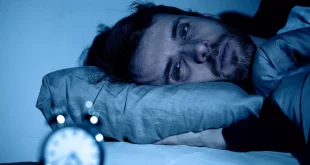One of the most important foundations of health, sleep is essential for both mental and physical wellbeing. However, millions of people worldwide still struggle to get a good night’s sleep due to persistent insomnia. Despite having enough opportunity for rest, this widespread sleep disorder is characterized by trouble falling asleep, staying asleep, or waking up too early and not being able to go back to sleep. Persistent sleeplessness has a disastrous effect on day-to-day activities and general well-being. This article explores the origins, effects, and possible therapies for persistent insomnia, assisting those who experience it in transitioning from the pitch-blackness of sleepless evenings to the light of peaceful mornings.
Comprehending Prolonged Sleeplessness
There are two main categories of insomnia: acute and chronic. Acute insomnia is a transient sleep disorder that typically goes away on its own. It is frequently brought on by upsetting life events or big routine adjustments. Conversely, chronic insomnia necessitates intervention since it lasts for three months or more and occurs at least three evenings a week.
Roots of Persistent Sleeplessness
Numerous causes, many of them intricately entwined, can contribute to chronic insomnia. Typical causes include some of the following:
Psychological Factors
The main causes of persistent insomnia are stress, anxiety, and sadness. People who struggle to fall asleep may find it difficult to find the quiet they need to sleep due to their minds’ unwillingness to shut down.
Medical Conditions
Sleep patterns can be disturbed by gastrointestinal problems, neurological disorders, asthma, and chronic discomfort.
Medications
A number of drugs, including those for depression, anxiety, asthma, and high blood pressure, can cause sleep disturbances.
Lifestyle Choices
Lack of physical activity, excessive caffeine or alcohol use, irregular sleep schedules, and poor sleep hygiene can all lead to the onset and duration of insomnia.
Those who are sensitive to their environment may find it difficult to fall asleep due to noise, light, and uncomfortable temperatures.
The Effects of Prolonged Sleeplessness
Chronic insomnia has many more detrimental effects than just weariness. On both physical and mental health, chronic sleep deprivation can have significant and far-reaching impacts, such as:
Cognitive Impairment
The ability to think clearly depends on sleep. Prolonged sleeplessness can cause problems with focus, recall, and making decisions.
Emotional Distress
Prolonged sleeplessness can both induce and result in mood disorders including anxiety and sadness. These symptoms might worsen due to the despair and helplessness that comes with not being able to sleep, leading to a vicious cycle.
Physical Health Risks
Long-term sleeplessness raises the risk of diabetes, obesity, cardiovascular disease, and compromised immune system.
Decreased Quality of Life
Relationships can be strained, productivity can be decreased, and general quality of life can be harmed by the ubiquitous exhaustion and irritability that come with chronic insomnia.
Resolving Prolonged Sleeplessness
Even though managing chronic insomnia can be extremely difficult, there are several tactics and therapies that can help patients take back control of their sleep and enhance their general health.
Insomnia Cognitive Behavioral Therapy (CBT-I)
When it comes to treating persistent insomnia, CBT-I is regarded as the best option. This methodical technique assists people in recognizing and altering ideas and actions that interfere with their ability to sleep. Important elements of CBT-I consist of:
Stimulus Control
This entails restricting activities like reading or watching TV in bed and connecting the bed with sleep.
Sleep Restriction
Inversely, getting less sleep can result in more restful sleep. Using this method, one gradually increases the length of time spent in bed after lowering it to correspond with the quantity of sleep they actually obtain.
Cognitive Therapy
This helps to lower anxiety and encourage a healthier sleep mentality by addressing negative ideas and concerns about sleep.
Relaxation Techniques
Techniques like mindfulness meditation, progressive muscle relaxation, and deep breathing can help ease anxiety and get the body ready for sleep.
Modifications to Lifestyle and Behavior
Sleep Hygiene
It’s important to establish healthy sleep hygiene habits. This entails keeping a regular sleep schedule, setting up a peaceful sleeping environment, and abstaining from stimulants such as nicotine and caffeine right before bed.
Physical Activity
Exercise on a regular basis can improve sleep quality, although it’s best to avoid strenuous activity right before bed.
Dietary Considerations
You can get better sleep by eating a balanced diet and avoiding large or spicy meals just before bed. Reducing alcohol and caffeine consumption is also advantageous.
Stress Management
Practices like mindfulness meditation, tai chi, and yoga can help manage stress, which is a common cause of insomnia.
Medical Interventions
Medical intervention can be required in some situations. Choices consist of:
Medications
Prescription sleep aids can help control insomnia temporarily, but they are not a long-term cure. Because of the possibility for reliance and adverse effects, it is imperative to use them under a doctor’s supervision.
Alternative Therapies
Although their effectiveness varies and their usage should be exercised with caution, supplements like as magnesium, valerian root, and melatonin may be helpful for certain people.
New Research and Emerging Therapies
Research into new therapies and technology is continuously taking place in the field of sleep medicine, which is always changing. Several new strategies consist of:
Digital CBT-I
More and more online and app-based CBT-I programs are becoming accessible, providing easy access to efficient therapy.
Wearable Sleep Technology
Tracking sleep patterns with a device can yield insightful data and assist customize therapies to each person’s needs.
Chronotherapy
Beneficial for those with circadian rhythm abnormalities, this treatment consists of progressively modifying sleep schedules to reset the body’s internal clock.
Individual Triumph Stories
Although scientific explanations and available treatments are important, anecdotes of individuals conquering chronic insomnia can offer hope and motivation. A multitude of people have recounted their experiences transitioning from restless nights to peaceful mornings, providing valuable perspectives on the pragmatic implementation of several therapies and approaches.
Example Analysis: Emma’s Trip
For more than ten years, Emma, a 45-year-old marketing executive, had persistent sleeplessness. Her incessant travel, unpredictable schedule, and demanding profession made it harder for her to get enough sleep. Emma tried a number of home cures and sleep aids without success before turning to CBT-I.
Emma was able to rewire her mind to equate sleeping in the bed with stimuli control. At first, sleep limitation seemed contradictory, but over time, her sleep efficiency increased. Her anxiety that kept her awake was addressed and managed with the help of cognitive therapy. Emma discovered how to unwind before going to bed by including mindfulness and deep breathing exercises.
Emma implemented CBT-I in addition to lifestyle modifications. She set up a consistent sleep routine, made her bedroom quiet and dark, and cut back on her coffee intake. Her quest for improved sleep was further aided by a balanced diet and regular exercise.
Emma’s sleep patterns improved dramatically over a few months. She started to feel more emotionally stable, rested, and focused. Emma’s story demonstrates how evidence-based therapies and lifestyle changes can effectively cure and overcome severe insomnia.
Final Thoughts
Those who suffer from chronic insomnia are left with a crippling ailment that has a lasting impact on their lives. However, insomnia may be conquered and peaceful, restorative sleep can be regained with a comprehensive approach that includes cognitive behavioral therapy, lifestyle modifications, and, when necessary, pharmacological therapies. Through comprehending the origins, acknowledging the consequences, and investigating the plethora of accessible therapies, individuals can transition from the obscurity of insomnia to the light of restorative sleep. Even if the road may be difficult, it is worthwhile because it offers the possibility of better sleep and a higher quality of life.






